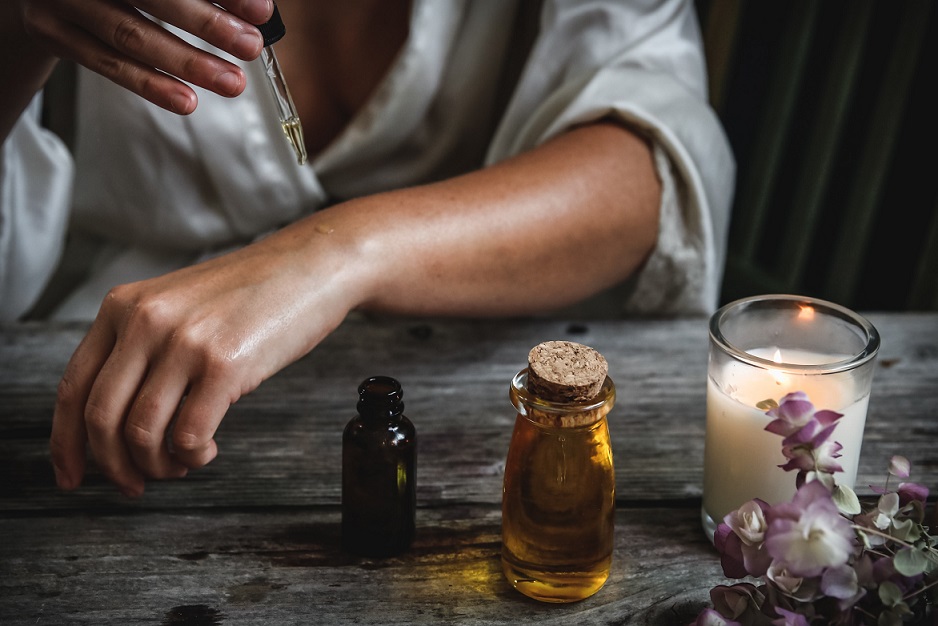Uncategorized
SQUALANE – KEEP SKIN MOISTURIZED AND ANTI-AGING
Beside properly cleansing, keeping skin moisturized is one of the keys to healthy and beautiful skin!
The phrase nobody is salty when it comes to – aging skin – a certain state that every skin will encounter. It is only a matter of sooner or later. However, instead of worrying too much or neglecting the “want to come” skin, we just need to take care of the skin properly: choose products containing Squalane – an ingredient with many impressive benefits for the skin. skin and body. Typically, it moisturizes and minimizes skin aging.

What is Squalane?
Squalene (letter e) is an ingredient produced by the human body, animal or plant. It is a precursor to cholesterol and all steroids. Squalene is found in olive oil and deep sea shark liver oil. For the human body, squalene makes up 10-12% of the skin’s natural oil or sebum.

Squalene has several beneficial properties when absorbed from food or in supplement form. Examples: potential anti-cancer effects, skin protection and moisturization, antioxidant activity, improved immune response to vaccines.
However, squalene is in a natural state unstable for use in skin care products. When exposed to oxygen, this ingredient can be oxidized and damaged rapidly. Therefore, before squalene can be added to skin care products, squalene (the e) must be hydrogenated into squalane (the a) – a stable molecule. Hydrogenation is the process of converting squalene from an unsaturated oil into squalane – a saturated oil. This process makes the oil more skin-friendly and increases its shelf life.
As a result, most skin care products contain more squalane than squalene.
Squalane is a natural, colorless ingredient, derived mainly from two sources: deep sea shark liver oil and vegetable oil such as olive, rice bran, …
Differences between Squalene and Squalane
| Squalene | Squalane | |
| Source | From vegetable oil (olive oil), shark liver oil | Is a hydrogenated form of squalene |
| Nature | Less stable and does not last long in cosmetic formulations | More stable and with a longer use time |
| Uses | Helps reduce the appearance of wrinkles
Acts as an antioxidant, preventing the harmful effects of free radicals |
Helps reduce the appearance of wrinkles
It is an excellent skincare ingredient for oily skin that won’t clog pores because of its lightweight texture |
Benefits of Squalane for the skin
Protect skin from free radicals
Free radicals have a very high oxidation capacity. Stressful lifestyle, unscientific diet, exposure to natural and artificial toxins (emissions, radiation, chemicals, …) promotes free radical formation. At that time, the number of free radicals increases dramatically, causing reactions in the body, destroying cells, the skin becomes premature aging and many other harms.

As a result, squalene and squalane are capable of reducing the harmful effects of free radicals on the skin, according to an article published in the journal Molecules. Similar to squalane and squalene, compounds such as carot-carotene, coenzyme Q10, vitamins A, E and K are also able to protect skin from free radicals.
Impressive emollient
Emollients help reduce the appearance of dry skin and flakiness. They create a thin film that protects the skin from moisture loss and maintains a healthy skin barrier. Especially for sensitive skin or acne-prone skin, the health of the skin barrier becomes even more important.
Squalane and squanlene are both emollients. They penetrate deeply into the skin quickly, leaving a lightweight protective film and does not cause heavy / squashy feeling for the user.
Effective moisturizer
Squalene and squalane help prevent skin dehydration. This occurs when moisture in the top layers of the skin evaporates, leading to dryness or worsening dry, flaky skin. Squalane and squalene act as a physical barrier between the skin and the air to prevent water loss through the skin.
Antioxidants
Several recent studies have shown that squalane not only hydrates, softens the skin, but can also be an effective anti-aging ingredient because of its antioxidant properties. That is, Squalane counteracts some of the effects of oxidative stress (an imbalance of free radicals and antioxidants in the body) on the skin. Squalane can then slow down the anti-aging process by protecting the skin from UV rays and free radicals. These are 2 factors that damage skin cells and damage the skin’s natural collagen. More specifically, squalene increases collagen production (procollagen type 1), which helps to smooth wrinkles.
Balances the amount of oil on the skin
Sebum or the natural oils the skin secretes on the skin helps to protect the skin from drying out. When skin is dry due to the effects of the environment, cleanser contains strong detergents, changes or has a good hormonal imbalance, the skin can release too much sebum to reduce this dryness. Oil secretion can clog pores, creating a greasy feeling on the skin. Therefore, an alternative to being able to regulate oil secretion is to use oils that mimic skin’s natural oils (jojoba oil, squalanee, ..). Because according to the analysis of the composition of sebum, squalene accounts for 13% of the natural sebum of the skin.
Squanlane and Hyaluronic Acid – which ingredients are better moisturizing
Both ingredients: squalane and hyaluronic acid are used to soften and moisturize the skin. However, if placed on the scale for comparison, which ingredients are better moisturizing? If we analyze in depth, we will see that these two ingredients may have the same effects, but in nature, they work differently:
| Squanlane, squalene | Hyaluronic acid |
| Squalene appears in the lipid barrier of the skin, acting as a barrier to keep moisture locked, limit water loss and leave skin soft, plump for longer. | Hyaluronic acid acts as an ingredient that increases the amount of water in the skin |

Therefore, it is everyone’s choice to use products that contain ingredients. However, it is possible to use hyaluronic acid to hydrate first, then use squanlane to retain moisture and maximize its ability to retain moisture.
Is Squalane suitable for all skin types?
Squalane can be used for all skin types, including sensitive skin. According to Cosmetic Ingredient Review Expert Panel, squalene and squalane are considered safe ingredients when used for skin care purposes.
Note when choosing moisturizing products good for the skin
Creating a habit of reading the ingredients sheet of skin care products carefully is one of the top things that helps us to understand products and make better choices. Besides, because squalane and squalene are derived from vegetable oils (olive, wheat germ, rice bran) or animals (shark liver oil), we can consider when deciding to use. Today, many cosmetic brands use squalane of plant origin rather than animal for humanistic and sustainable purposes.















